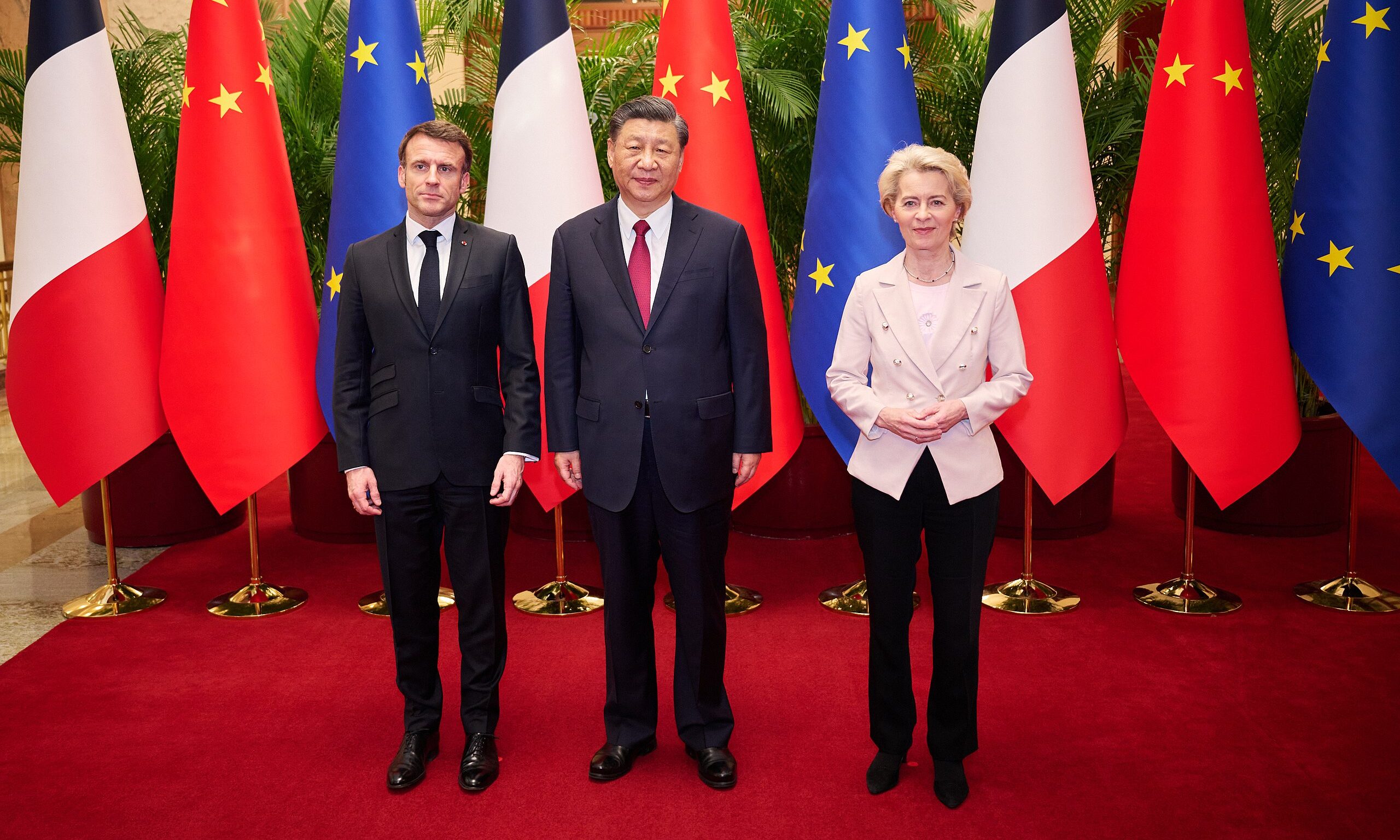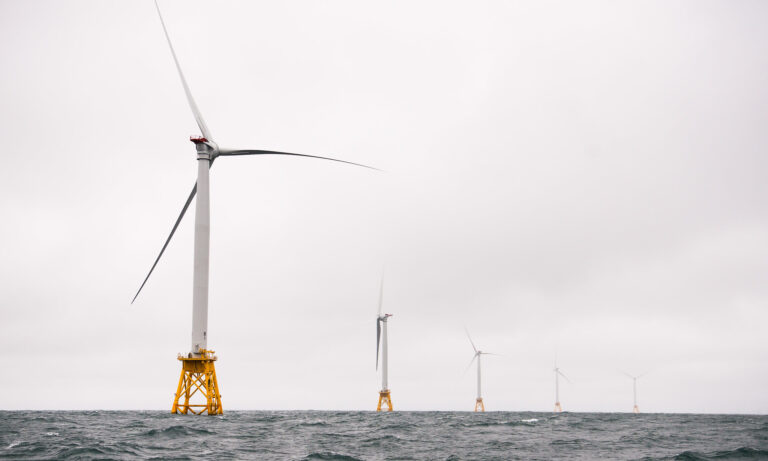
It seems that recently, there have been growing doubts as to whether there is still a need to talk to China about Russia and their ‘no-limits’ friendship. This was noticeable during Scholz’s visit to China, whose request to Xi Jinping to put pressure on Putin to withdraw Russian troops from Ukraine was met with harsh criticism. While Scholz’s visit deserves to be scrutinized, mainly because his stance undermines the EU China agenda, including the German China strategy, his comments on Ukraine should not be assessed so negatively. Raising the Russia issue and asking China to put pressure on Putin is an important factor in the Western delicate deterrence-assurance game with Beijing.
Since the Russian invasion of Ukraine on February 24, 2022, and the West’s realization that China, unlike in 2014 (the Russian annexation and then occupation of Crimea), is not a neutral player but in fact a supporter of Putin, there has been a consensus in the EU that China-Russia ‘no-limits’ friendship should be raised in meetings with Chinese officials. Despite the initial naïve belief that Beijing could play a mediating role, eventually, Western leaders realized that it was highly unrealistic to expect China to condemn Russia and respect the UN Charter and the norms of non-interference and territorial integrity that Beijing professes to adhere to.
Nonetheless, there is still hope that because Sino-Russian ties are not a classic alliance and, despite various converging interests, there are also disagreements, there is space for the West to drive a wedge between the two or at least push China to distance itself from Russia. Moreover, every, even very subtle, crack in the Sino-Russian alignment is taken by some Western experts as evidence of problems in the ‘marriage of convenience’, raising hopes of an eventual clash between the two. An example is the publication of a map by China’s Ministry of Natural Resources in August 2023, which sparked controversy by reviving a settled dispute with Russia over the Bolshoi Ussuri island. In short, the hope for serious China-Russia split still hangs in the air.
European Consistent Narrative
Despite continuing hopes of deepening misunderstandings between China and Russia and looking for signs of Beijing distancing itself from Moscow, the European Union and its member states, at least at the political level, have so far shown unwavering unity on Sino-Russian cooperation.
Firstly, there is a consensus that China is tacitly supporting Russia. Second, EU officials are aware that China is the stronger player in the Sino-Russian dyad. Beijing is said to have an advantage over an isolated and sanctioned Russia. This, at least in theory, but not necessarily in practice, gives China also a leverage. Third, there is a need to constantly raise the issue of China’s cooperation with Russia during talks with Beijing, including calls for pushing Russia to stop its aggression and withdraw troops from Ukraine. Finally, the EU asks China not to supply Russia with arms and circumvent sanctions, otherwise this would significantly damage EU-China relations. The EU has already blacklisted four companies registered in China in its 13th sanction package against Russia.
At the first high-level meeting since Russia’s invasion that was EU-China on-line summit on April 1, 2022, the EU’s message was focused on Russia’s responsibility not only for the invasion of Ukraine but also the fact that “Russia purposefully undermined Europe’s security architecture.” The President of the European Council, Charles Michel, stated at the time that the EU and China “must work together on stopping Russia’s war in Ukraine as soon as possible.” A very similar message was sent in December 2023, when an in-person EU-China summit was held in Beijing. Von der Leyen and Michel called on China to use its influence on Russia to stop its war of aggression, strongly encouraged China to engage on Ukraine’s Peace Formula and to refrain from supplying lethal weapons to Russia and circumventing sanctions.
When Chinese special envoy to Eurasia, Li Hui, visited Europe for the first time in May 2023, during his stay in Poland, Deputy Foreign Minister Wojciech Gerwel highlighted that the withdrawal of Russian troops and the return of unlawfully seized territories by Russia were the only acceptable solution to achieve a just peace. The Polish official expressed the hope that China would condemn Russia’s aggression, and exert pressure on Russia to return to compliance with the principles of international law.
The consistency in the EU’s narrative about Russia in talks with China was highlighted during Li’s second trip to Europe in March 2024. EEAS Managing Directors for Eastern Europe and Central Asia, Michael Siebert, and for Asia and the Pacific, Niclas Kvarnström, said that the EU expects China to call on Russia to immediately and unconditionally withdraw all forces and military equipment from the entire territory of Ukraine. The EU side reiterated its serious concerns, regarding significant volumes of dual use and advanced technology items being exported from China to Russia’s military industrial complex.
Von der Layen echoed this while talking to Xi Jinping during his trip to France on 6 May: “We count on China to use all its influence on Russia to end Russia’s war of aggression against Ukraine.”
China’s Inaction Fatigue
It seems that recently, there have been more voices among European China experts saying that keeping Russia on the agenda with China has little to no use. The reason is that raising the Russia issue is allegedly counter-productive, as Xi Jinping himself does not want to talk about the war in Ukraine. Putting pressure on China to address this only angers Beijing with no discernible impact on its stance. The argument goes that the time could be better spent focusing on other pressing issues important for bilateral relations with China.
It seems that the voices the author has heard in closed meetings over the past few weeks can easily be found in the public sphere as well. For example, before Xi Jinping’s trip to France in May, Ifri published a paper with an argument that “since the beginning of the war, China has done everything possible to keep its distance from the conflict. It has no interest in getting further involved, either by supporting the Europeans or by providing military support to Russia.” What is more, Marc Julienne, the author of the report, claims that the French authorities are pursuing two ultimately contradictory objectives: to convince Xi that it is in his interest to help the Europeans put pressure on Vladimir Putin to end the war, and to dissuade the Chinese President from delivering arms to his Russian friend. “We believe that Xi can help us while simultaneously fearing that he could help Putin.”
However, the most symptomatic example is the rather harsh public criticism of Scholz by several European experts after his China trip. The critical reactions to the visit were quite widespread and mostly reasonable. Still, the panning of Scholz’s statements on Russia and Ukraine was quite surprising. According to the readout published by Germany, Scholz said: “as a permanent member of the Security Council, China has a prominent responsibility for world peace, and China’s word has weight in Russia. That’s why I asked President Xi to influence Russia so that Putin finally breaks off his insane campaign, withdraws his troops and ends this terrible war.”
Despite the fact that the talking points were essentially the same as those that the EU has been presenting since the invasion, when his words were made public, Scholz faced huge criticism. Theresa Fallon asked at her X profile “Scholz, once again, asked Xi to ‘influence Russia’ –it hasn’t worked for over 2yrs but this time might be different? #Peacewash2”. Her post has attracted a sizeable attention. German MEP from the Greens, Reinhard Bütikofer quoting her post and wrote “I wonder who @Bundeskanzler thinks he is fooling with this really illusionary approach but himself. Meanwhile Plamen Tochev posted: Asking #XiJinping to exert pressure on #Putin, so that #Russia withdraws from #Ukraine, only leads to a loss of credibility of the #EU. It shows that: either European leaders don’t understand Russia and China; or they just don’t mean what they say.”
Staying on Message Matters
If anything, Scholz can be accused of devoting too little space and time to Russia and the war in Ukraine in Beijing, compared to the strictly bilateral issues, which in fact undermined the EU’s de-risking agenda. As for Scholz’s comments on Russia, they were similar to the message that the EU and member states have been sending to China since the Russian invasion.
The EU has been consistently asking China to put pressure on Putin. However, this does not mean that European officials believe that China will do so, or even if it does, that it will succeed and the Russian leader will follow. In fact, the reason why the EU is talking about Russia with China is two-fold: to maintain the EU’s unity in adherence to international law due to the EU’s role as a normative power; and to use Russia question as an instrument in a very delicate deterrence-assurance game with China to make it stick to its restraint, and not to push it fully into Russia’s arms. Both are crucial for European security.
Asking China for unlikely deeds should be seen as an ongoing process of signaling that the EU is aware of the nature and content of the Sino-Russian ties and China’s role in supporting Russia, that the EU is monitoring China’s behavior and that its ultimate goal is to restore Ukraine’s sovereignty within its internationally recognized borders. The EU’s appeals are not naïve in the sense of expecting China to fundamentally change its position, but rather a show of Western unity, demonstration of adherence to international law and a strong signal that Europe will not compromise its own principles. Dropping the Russia issue from the agenda would be dangerous to the EU’s credibility as a normative power, especially its commitment to respecting sovereignty, independence and territorial integrity and renouncing war as a political tool.
Staying silent might be interpreted by Beijing as if Europe tacitly conceding to Chinese points. Then, as a result, China might feel stronger and more convinced about its own righteousness, leading it to even closer cooperation with Russia with more detrimental implications for European security.
Raising the issue of Russia is also an important element in deterrence-reassurance signaling. There is no doubt that the China-Russia alliance is strong and, despite differences and disagreements between the two, common interests outweigh problems.
For Europe, which is aware of the strength of Sino-Russian ties, the priority is not to strengthen this ‘alliance’. To achieve that goal Europe’s focus should be to prevent China from abandoning its so-far restraint. If China lets off the breaks, this may lead to the crossing of two red lines that the EU has already drawn: the massive and unrestricted delivery of lethal weapons to Russia and the heating up of tensions in the Asia-Pacific region that may spiral into a kinetic conflict.
The EU should play a delicate balancing game. On the one hand, to threaten China that if it crosses red lines, it will significantly damage its relationship with the EU. This is a deterrent. And it can only work if the consequences are vague, so as not to give China enough room to prepare. This is also an answer to the laments that the EU is only talking while doing nothing.
But an element of reassurance is needed at the same time. Asking China to do something that is unlikely is not granting China a status it does not deserve or have, as some have claimed. In fact, it is a kind of psychological game. The goal is to remind China of its global responsibility, its superpower status as well as its superiority in relations with Russia so that Xi Jinping will think twice about whether it is worth working more closely with Putin.
Maintaining the current approach of keeping Russia on the agenda in talks with China is thus prudent and a better alternative to either staying silent or using threats only. If Beijing overreaches and crosses the red lines, Central Europe will be more seriously affected than Western Europe. In both cases, Russia will be emboldened and incentivized to be more aggressive, including against NATO eastern flank. In case of conflict in Asia, e.g. in the Taiwan Strait, Central Europe will be additionally affected economically, due to disruption of trade. It is therefore in the interest of Central European countries to advocate for keeping talking with China about Russia and persuading Western colleagues not to let down our guards.
Written by
Justyna Szczudlik
ShilinabolanJustyna Szczudlik is the deputy head of research, a China analyst, and the former Head of Asia-Pacific Program (2016-2021) with the Polish Institute of International Affairs (PISM).


